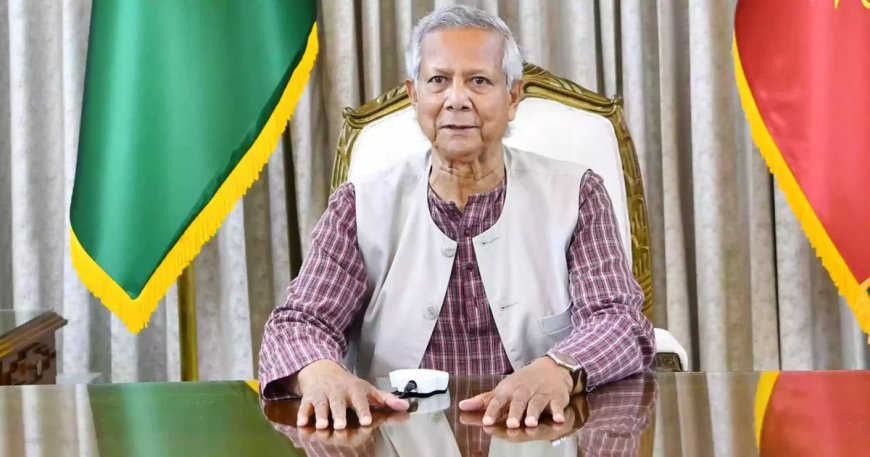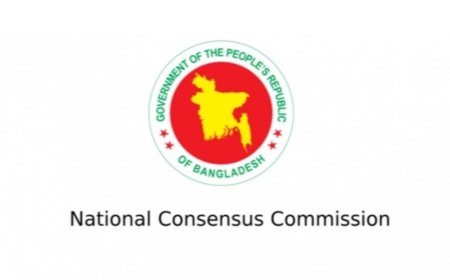Reform commissions: Fewer women, no representation from religious minorities
Reform commissions: Fewer women, no representation from religious minorities

The commissions established for reforms in six key areas, including the constitution and judiciary, are lacking in inclusivity. There is no representation from religious or ethnic minority communities, and the number of women involved is notably low.
Of the 50 members across the six commissions, there are 15 former bureaucrats, two former police officers, eight university professors, five judges, six lawyers, six student representatives, and eight individuals from other professions, including NGO workers, human rights activists, and experts. Only five of these members are women, and just one of the six student representatives has been publicly identified.
Additionally, only the heads of four commissions have been announced, and out of the 10 total commissions, only one is led by a woman, which is the Women's Affairs Reform Commission. Overall, the commissions are dominated by bureaucrats, with Dhaka University, particularly its law department, being prominently represented by five professors.
Following the fall of the Awami League government after a student-led uprising, both the movement’s leaders and the interim government emphasized the creation of an inclusive society, but this vision is not reflected in the formation of the reform commissions.
Raja Debashish Roy, head of the Chakma Circle, expressed frustration over the absence of ethnic and religious minority representation in the commissions. In a Facebook post on October 13, he noted, "In the reform commission, tribal, religious minority, women, and other marginalized communities are either completely absent or significantly underrepresented, tarnishing the image of a government led by a Nobel laureate."
In an interview with *Prothom Alo*, Raja Debashish Roy explained that he had been proposed as a member of the reform commission but the proposal was eventually dropped without explanation.
The new administration, which took office after the Awami League’s fall, has focused on reforms in several sectors. Full commissions have been formed to recommend changes in the constitution, judiciary, public administration, electoral system, police, and anti-corruption commission. Four more commissions were later formed for media, health, women’s issues, and labor, though their member lists have not yet been disclosed.
On October 17, Syeda Rizwana Hasan, advisor to the Ministry of Environment, Forest, and Climate Change, stated that the commission members' names would be announced within 7 to 10 days.
Despite these efforts, many of the committees and task forces established for reforms also lack inclusive representation. One interim government advisor assured *Prothom Alo* that the commissions would consult with all relevant parties, including civil society and minority representatives, ensuring that the interests of all communities would be considered.
However, concerns remain. Officials from 25 non-administration Bangladesh Civil Service (BCS) cadres have raised objections over the lack of representation in the public administration reform commission, as it is mostly comprised of former or current administration cadre officers. This imbalance, they argue, fails to fully reflect the issues faced by the public administration.
Among the six commissions, the constitution reform commission, led by political scientist Ali Riaz, is considered the most important. However, it also lacks representation from religious and ethnic minorities, prompting calls for greater inclusivity.
While Muslims constitute about 91% of the population, approximately 9% belong to other religions such as Hinduism, Christianity, and Buddhism, alongside various ethnic minority groups. Many are dissatisfied with the lack of representation in the reform commissions.
Former Appellate Division Justice MA Matin acknowledged these concerns but emphasized that the commissions could still propose reforms that account for the interests of all groups. Professor Selim Raihan from Dhaka University, a member of a task force on economic strategy, also noted the need for greater inclusivity in the commissions and suggested that new members could be appointed to enhance representation.
Raihan added, "After the mass uprising, we are advocating for a discrimination-free Bangladesh. This principle should guide all actions moving forward."
What's Your Reaction?





















































































